Vitamins for Weight Loss for Females: Your Comprehensive Guide
Introduction
Vitamins for weight loss for females play a crucial role in enhancing metabolic processes, boosting energy levels, and supporting overall health. Understanding the right vitamins can empower women to achieve their weight loss goals more effectively and sustainably. This comprehensive guide delves into the essential vitamins that aid weight management, their sources, benefits, and how to incorporate them into a balanced diet.
1. Essential Vitamins for Metabolism Boost
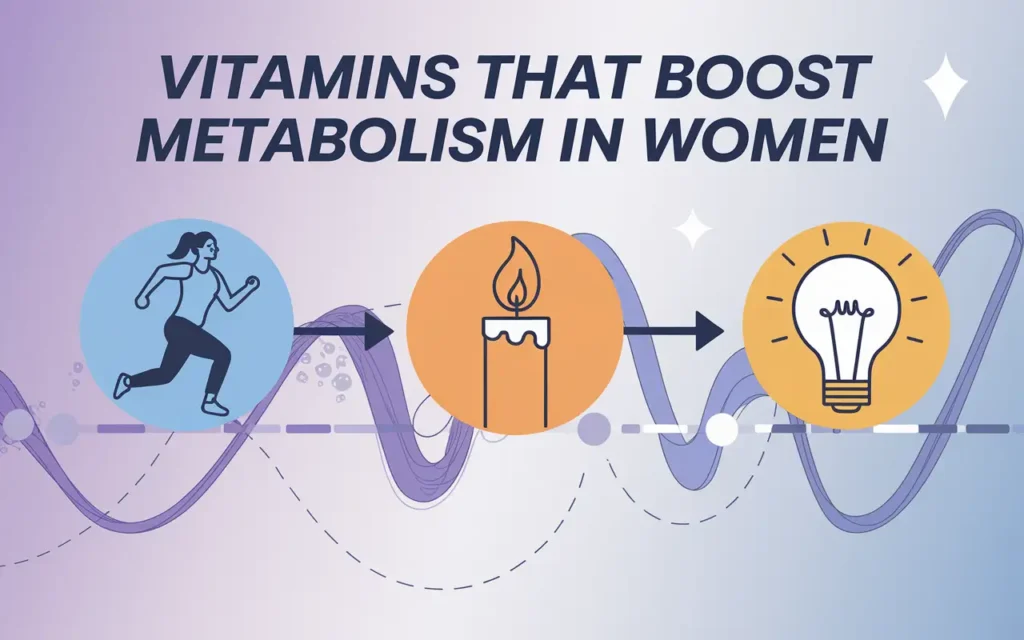
Vitamins for weight loss for females often focus on those that significantly impact metabolism. A well-functioning metabolism is key to burning calories efficiently, which is fundamental for weight loss. Vitamins such as B12, B6, and B1 are instrumental in converting food into energy, thereby enhancing metabolic rates.
Vitamin B12
Vitamin B12 is essential for red blood cell formation and neurological function. It plays a vital role in metabolizing fats and carbohydrates, making it crucial for weight management.
Vitamin B6
Vitamin B6 aids in protein metabolism and cognitive development. It helps in maintaining proper brain function, which can influence eating habits and stress levels related to weight gain.
Vitamin B1 (Thiamine)
Thiamine is necessary for glucose metabolism, allowing the body to convert carbohydrates into energy efficiently. This process is vital for sustaining energy levels during weight loss.
- Boosts metabolic rate
- Enhances energy production
- Supports nervous system health
2. Vitamin D and Weight Loss
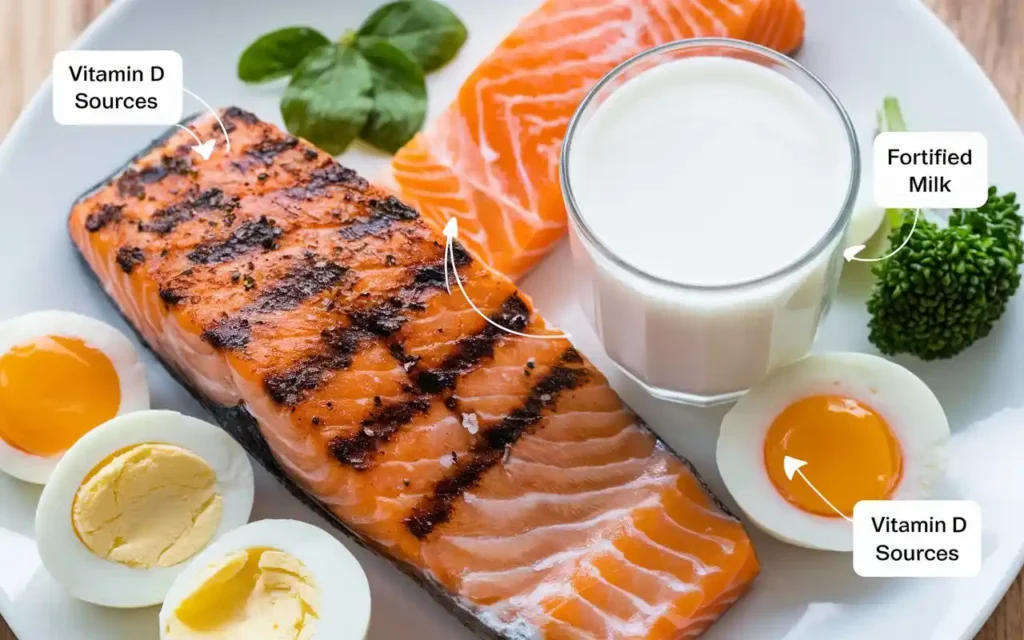
Vitamins for weight loss for females include Vitamin D, which has been linked to reduced body fat and improved insulin sensitivity. Adequate Vitamin D levels can support hormonal balance, which is essential for effective weight management.
Benefits of Vitamin D
Vitamin D aids in calcium absorption, which is crucial for bone health. Additionally, it plays a role in regulating the hormones that influence appetite and fat storage.
Sources of Vitamin D
Sunlight is the primary source of Vitamin D, but it can also be obtained through foods like fatty fish, fortified dairy products, and supplements.
| Food Source | Vitamin D Content |
|---|---|
| Salmon (3.5 oz) | 570 IU |
| Fortified Milk (1 cup) | 115-124 IU |
| Egg Yolks (1 large) | 37 IU |
3. B Vitamins: Energy and Fat Burning
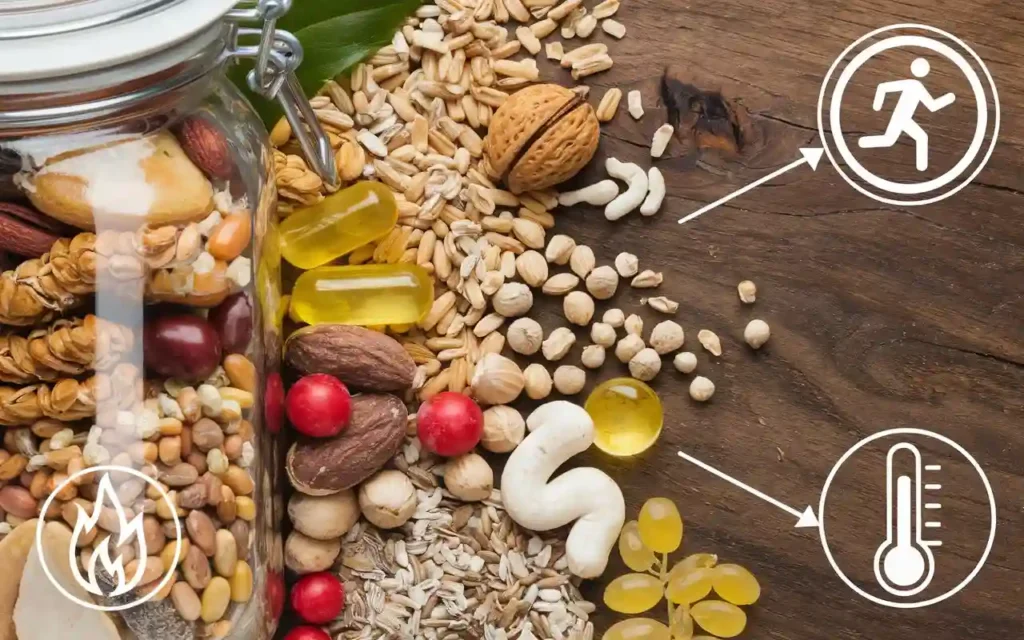
Vitamins for weight loss for females prominently feature B vitamins, which are essential for energy production and fat metabolism. These vitamins help the body convert dietary energy into usable fuel, thereby supporting weight loss efforts.
Role of B Vitamins
B vitamins, including B1, B2, B3, B5, B6, B7, B9, and B12, work synergistically to support various bodily functions that contribute to weight loss, such as enhancing energy levels, improving digestion, and reducing fatigue.
Food Sources of B Vitamins
B vitamins are abundant in whole grains, meat, eggs, dairy products, legumes, seeds, and leafy green vegetables.
- Enhances energy metabolism
- Supports healthy skin and hair
- Improves mood and reduces stress
4. Vitamin C: Antioxidant Power for Weight Management
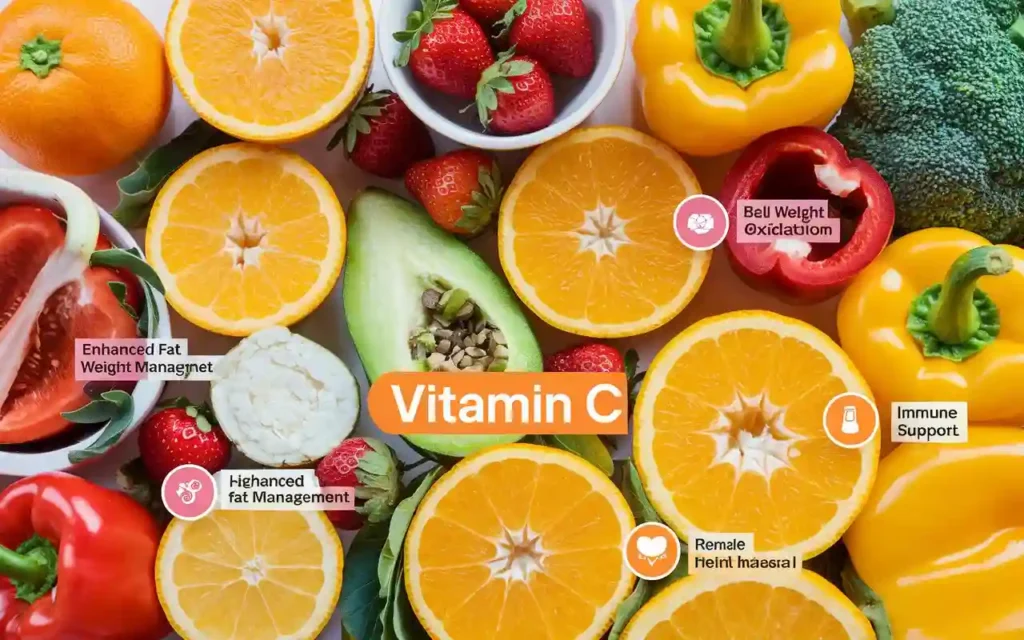
Vitamins for weight loss for females also include Vitamin C, a powerful antioxidant that helps in reducing inflammation and supporting the immune system. Vitamin C can aid in the fat-burning process by enhancing the body’s ability to oxidize fat.
Benefits of Vitamin C
Vitamin C plays a role in collagen synthesis, which is essential for maintaining healthy skin and connective tissues. It also helps in the absorption of iron from plant-based foods, which is important for energy production.
Sources of Vitamin C
Citrus fruits, strawberries, bell peppers, broccoli, and Brussels sprouts are excellent sources of Vitamin C.
Key Points:
- Boosts immune function
- Enhances fat oxidation
- Supports skin health
5. Magnesium: Stress Reduction and Weight Control
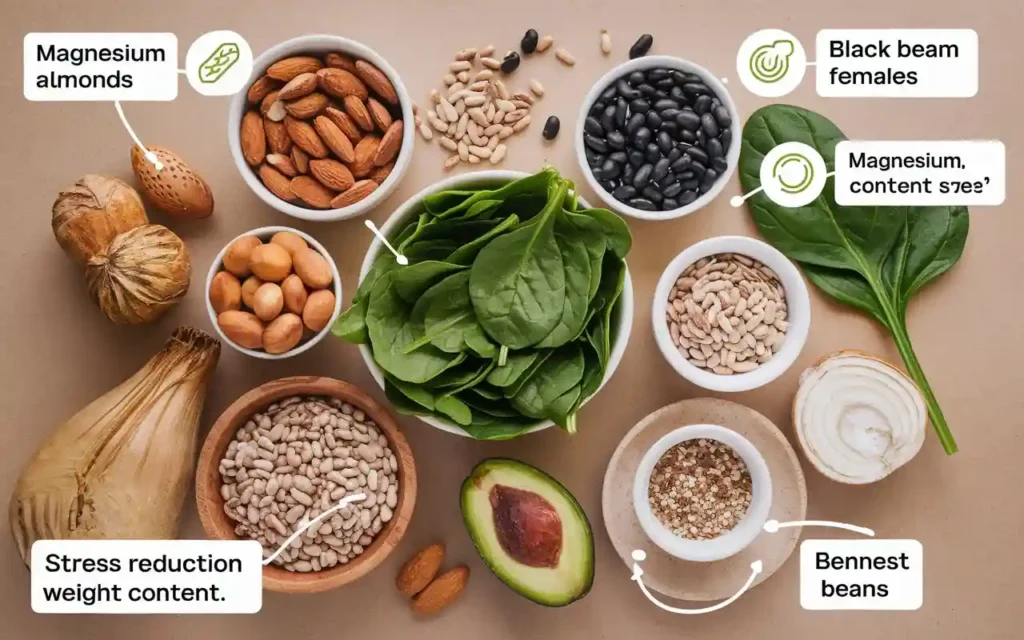
Vitamins for weight loss for females include magnesium, a mineral that plays a pivotal role in over 300 enzymatic reactions in the body. Magnesium helps in regulating blood sugar levels, reducing stress, and improving sleep quality, all of which are important for weight loss.
Importance of Magnesium
Magnesium assists in muscle function, nerve transmission, and energy production. It also helps in maintaining electrolyte balance, which is crucial during weight loss.
Sources of Magnesium
Nuts, seeds, whole grains, leafy green vegetables, and dark chocolate are rich in magnesium.
| Food Source | Magnesium Content |
|---|---|
| Almonds (1 oz) | 80 mg |
| Spinach (1 cup) | 157 mg |
| Black Beans (1 cup) | 120 mg |
6. Iron: Supporting Active Weight Loss
Vitamins for weight loss for females must address iron, a mineral essential for transporting oxygen in the blood. Adequate iron levels ensure that muscles receive the oxygen they need during physical activity, enhancing workout efficiency and promoting weight loss.
Benefits of Iron
Iron is crucial for energy production, immune function, and cognitive performance. It helps prevent fatigue and weakness, enabling women to maintain an active lifestyle essential for weight loss.
Sources of Iron
Red meat, poultry, seafood, beans, lentils, and fortified cereals are excellent sources of iron. Consuming Vitamin C-rich foods alongside iron sources can enhance absorption.
- Prevents anemia
- Boosts energy levels
- Enhances athletic performance
7. Omega-3 Fatty Acids and Vitamins Synergy
Vitamins for weight loss for females are often more effective when combined with Omega-3 fatty acids. The synergy between these nutrients can enhance fat metabolism, reduce inflammation, and support overall health.
How Omega-3 Enhances Vitamin Function
Omega-3 fatty acids improve insulin sensitivity, which helps in regulating blood sugar levels and reducing fat storage. When combined with vitamins like D and B12, they amplify the body’s ability to burn fat efficiently.
Sources of Omega-3 Fatty Acids
Fatty fish such as salmon, mackerel, and sardines, flaxseeds, chia seeds, and walnuts are rich in Omega-3s.
Benefits:
- Enhances metabolic rate
- Reduces inflammation
- Supports heart health
8. Choosing the Right Multivitamins for Weight Loss
Vitamins for weight loss for females can be effectively sourced from a balanced diet, but sometimes supplements are necessary to meet daily requirements. Choosing the right multivitamin is crucial to ensure that you receive the necessary nutrients without overconsumption.
What to Look for in a Multivitamin
When selecting a multivitamin for weight loss, consider the following:
- Comprehensive nutrient profile
- Appropriate dosage levels
- Quality and purity certifications
- Free from unnecessary additives and fillers
Top Multivitamin Recommendations
Some reputable multivitamins for women include:
- Garden of Life Vitamin Code Women
- Optimum Nutrition Opti-Women
- Rainbow Light Women’s One
| Multivitamin | Key Ingredients | Benefits |
|---|---|---|
| Garden of Life Vitamin Code Women | Vitamins A, C, D, E, B12, Iron | Supports energy, immunity, and metabolism |
| Optimum Nutrition Opti-Women | Vitamins B6, B12, D, Calcium, Iron | Enhances energy levels and supports bone health |
| Rainbow Light Women’s One | Vitamin D, B Vitamins, Antioxidants | Boosts metabolism and supports overall health |
9. Dietary Sources vs. Supplements
Vitamins for weight loss for females can be obtained through both dietary sources and supplements. While supplements can help bridge nutrient gaps, obtaining vitamins from whole foods is generally preferred for better absorption and additional health benefits.
Advantages of Dietary Sources
Whole foods provide a complex matrix of nutrients that work synergistically, enhancing absorption and effectiveness. They also offer fiber, antioxidants, and other beneficial compounds that supplements may lack.
When to Consider Supplements
Supplements may be necessary for women with specific deficiencies, dietary restrictions, or increased nutrient needs due to factors like intense physical activity or hormonal changes.
- Ensures adequate nutrient intake
- Convenient for busy lifestyles
- Can target specific health needs
10. Integrating Vitamins into Your Weight Loss Plan
Vitamins for weight loss for females should be integrated thoughtfully into a comprehensive weight loss plan that includes balanced nutrition, regular exercise, and healthy lifestyle habits.
Creating a Balanced Diet
Incorporate a variety of nutrient-dense foods to ensure a broad spectrum of vitamins and minerals. Focus on whole grains, lean proteins, healthy fats, and plenty of fruits and vegetables.
Regular Physical Activity
Exercise boosts metabolism and enhances the effectiveness of vitamins in promoting weight loss. Aim for a mix of cardiovascular, strength, and flexibility exercises.
Healthy Lifestyle Habits
Adequate sleep, stress management, and hydration are essential components of a successful weight loss journey. These factors can influence how effectively your body utilizes vitamins and other nutrients.
| Strategy | Benefit |
|---|---|
| Balanced Diet | Ensures comprehensive nutrient intake |
| Regular Exercise | Boosts metabolism and burns calories |
| Stress Management | Reduces cortisol levels, preventing fat storage |
| Adequate Sleep | Supports hormonal balance and recovery |
Conclusion
Incorporating the right vitamins for weight loss for females can significantly enhance your weight management efforts. By understanding the roles of essential vitamins, choosing the right supplements, and integrating them into a balanced lifestyle, women can achieve their weight loss goals more effectively and maintain long-term health. Always consult with a healthcare professional before starting any new supplement regimen to ensure it aligns with your individual health needs.
References




